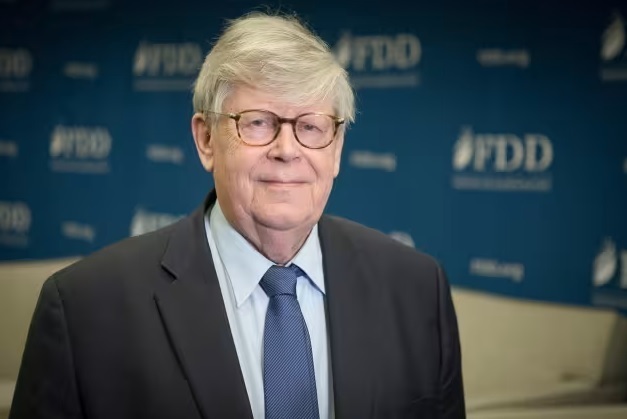
Olli Heinonen, former Deputy Director-General for Safeguards at the International Atomic Energy Agency (IAEA) in an interview with TABNAK said that Iran and the United States should enter into direct negotiations, without intermediaries or public threats of unilateral action.
Here is the full text of the interview:
It seems that Europe's perspective on the issue of Iran's nuclear program has moved closer to that of the United States and Israel. Accordingly, following the 12-day war, the E3 was not very inclined to extend the deadline for the ‘Snapback’ mechanism. This is because they had set conditions that were practically unachievable within a short timeframe. What is your assessment?
Several factors have led to the reimposition (“snapback”) of UN Security Council sanctions on Iran. Since 2003, the IAEA has sought to resolve inconsistencies in Iran’s declarations under its Non-Proliferation Treaty (NPT) safeguards obligations. Despite numerous agreements over the past two decades between the IAEA and Iran, the Agency has not been able to conclude that all nuclear material and related activities have been declared, nor that Iran’s nuclear program serves exclusively peaceful purposes.
Moreover, Iran’s enrichment of uranium to 60% U-235 has raised further concern, as there are no known civilian applications for enrichment levels so close to nuclear weapons-grade. It should also be noted that Iran’s enrichment infrastructure appears optimized for producing this high level of enrichment rather than the lower levels typically used for civilian purposes.
In addition, several member states remain deeply concerned about Iran’s missile program and its regional activities, including its support for organizations such as Hamas, Hezbollah, and the Houthis. These concerns were reflected in the UN Security Council vote endorsing the snapback of sanctions, which passed with nine votes in favor, four against, and two abstentions. The international community must now return to the path of diplomacy and find a new approach to resolve these issues peacefully.
Iran has announced that following the activation of the ‘Snapback’ mechanism, it will end its cooperation with the International Atomic Energy Agency based on the Cairo agreement. Under what conditions do you think Iran's cooperation with the IAEA will continue?
The Cairo Agreement primarily outlined a framework for negotiations between the IAEA and Iran to address long-standing safeguards implementation issues; a step to right direction as Director General of the IAEA, Mr. Rafael Grrossi stated. However, detailed talks have yet to take place to have necessary detailed plan and will depend on progress in resolving other related concerns. For the moment, Iran has suspended the implementation of the agreement.
It appears that Iran will retain the permission for inspection of its damaged nuclear facilities and the declaration of its estimated stockpile of highly enriched uranium as a bargaining chip in future negotiations. What is your assessment?
Iran’s public position appears to be linked to its “win-win” negotiation approach — a strategy involving partial, reciprocal concessions with compensatory measures. However, this approach has often functioned without clear milestones or mechanisms for evaluating progress.
A new framework could, for instance, stipulate that the IAEA verify the completeness of Iran’s safeguards declarations within a four-year period. During that time, certain sensitive nuclear activities — such as uranium enrichment — could be suspended while sanctions remain in place. Once the IAEA’s verification goals are achieved, some sanctions could be lifted, and suspended activities gradually resumed.
Europe has changed the Iran dossier from a technical issue to a security-legal issue under Chapter 7 of the UN Charter. On the other hand, the United States is also unwilling to engage in dialogue with Iran. It seems that Washington has also accepted a military solution for the issue of Iran's nuclear program. What is your assessment?
Several member states have reiterated their concerns regarding Iran’s missile program and its support for non-state actors in the Middle East, including Hamas, Hezbollah, and the Houthis. These broader concerns were again reflected in the UN Security Council vote on the snapback of sanctions and in subsequent public statements by member states. The outcome underscores the need to return to diplomacy and develop a new, effective framework for resolving the dispute.
US President Donald Trump has warned that his country will bomb Iran again if it restarts its nuclear program, “We won’t have to wait long this time,”. Do these statements imply a preemptive strike on the formation of any Iranian nuclear facilities? What is your assessment? Additionally, doesn't this mean that negotiations with Iran are completely off the table unless Iran politically surrenders to U.S. demands?
Iran and the United States should engage in direct negotiations, without intermediaries or public threats of unilateral action. While preemptive strikes may delay nuclear programs, they rarely succeed in ending them. Recent high-level Iranian statements suggesting a reassessment of negotiation goals are a positive sign.
Renewed diplomacy could help redirect resources away from questionable military and other expenditures, particularly at a time when Iran’s economy — weakened not only by sanctions but also by structural inefficiencies — struggles to meet the daily needs of its population. Continued instability risks deepening regional insecurity.
Finally, it is important to remember that the credibility of the NPT verification regime and the authority of the UN Security Council to maintain international peace and security are both at stake.